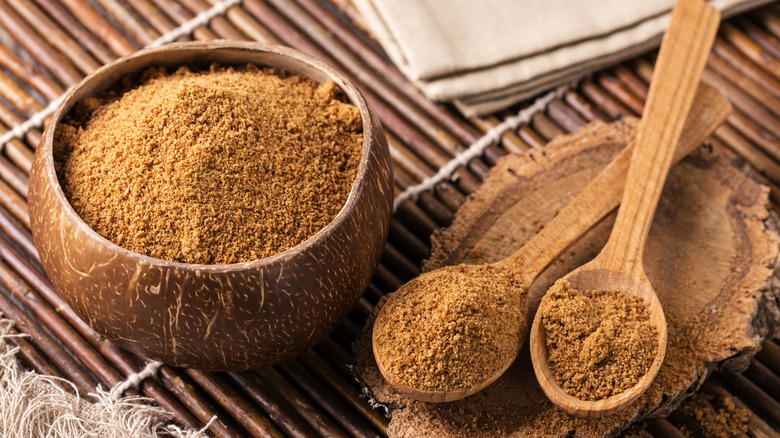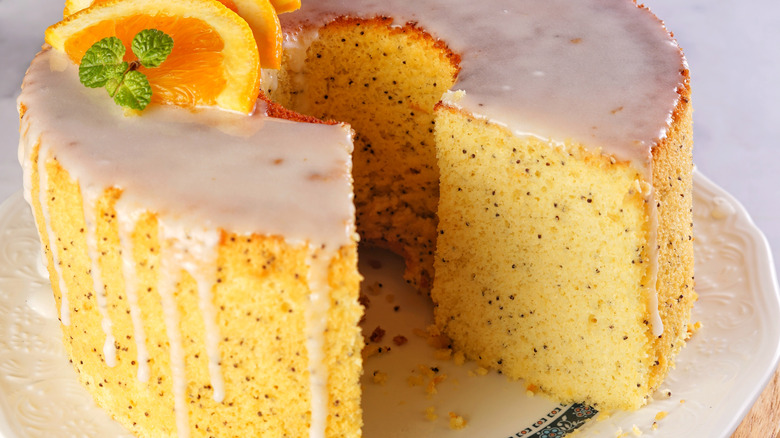Why Coconut Sugar Is Ruining Your Delicate Baked Goods
Everyone loves dessert, but not everyone loves the unhealthy elements in white sugar. According to Healthline, refined sugar has been associated with heart disease, obesity, diabetes, liver disease, and more, which has opened the door for the search for healthier sugar substitutes. Unfortunately, there is no perfect replacement, but sweeteners like coconut sugar have slightly healthier components and still bring a signature sugary taste. Coconut sugar, which comes from coconut palm tree sap, contains nutrients like iron, potassium, and zinc, and is less likely to spike your blood sugar than the refined version (via WebMD).
In fact, coconut sugar is one of the absolute best brown sugar substitutes out there. It already resembles brown sugar in color, as coconut sugar is a light tan shade, and it can be used as a 1:1 substitute in recipes for brownies, cookies, and more. If you'd like to use it as a powdered sugar replacement, A Place for Mom suggests blending it up in a food processor first, as coconut sugar is naturally fairly coarse. It is possible to use coconut sugar as a substitute for white sugar, and in some recipes, you can follow a 1:1 ratio, Not Enough Cinnamon shares. But you'll want to be careful when using it in certain baked goods, as it doesn't always produce satisfactory results.
Coconut sugar overpowers lighter flavors and colors
Before including coconut sugar in a baked good recipe, consider how the alternate sweetener may affect the end result. While coconut sugar is an excellent substitute for brown sugar, it gets trickier when using it as a white sugar replacement. According to the Martha Stewart site, coconut sugar has a more caramelly flavor than white, so it may overpower light, fruity, or floral flavors. Although it is sweet, it tastes more like molasses or maple syrup than neutral white sugar, Bake It With Love shares. For instance, if you're making these lemon cheesecake bars or this rose Turkish delight, you'll want to stick to the sugars listed in the recipe.
Due to its light brown hue, coconut sugar may also change the color of lighter desserts like angel food cake (via The Spruce Eats). Unless you're okay with your white or cream-colored baked goods turning a golden caramel shade, you'll want to stick to white sugar for these recipes. Where coconut sugar does shine, however, is in darker-colored foods where it complements the other flavors, such as banana bread, cinnamon waffles, or chocolate cake (via Martha Stewart). It also is an essential ingredient in many Thai marinades, stir-fries, rubs, and desserts, according to SIAM.

